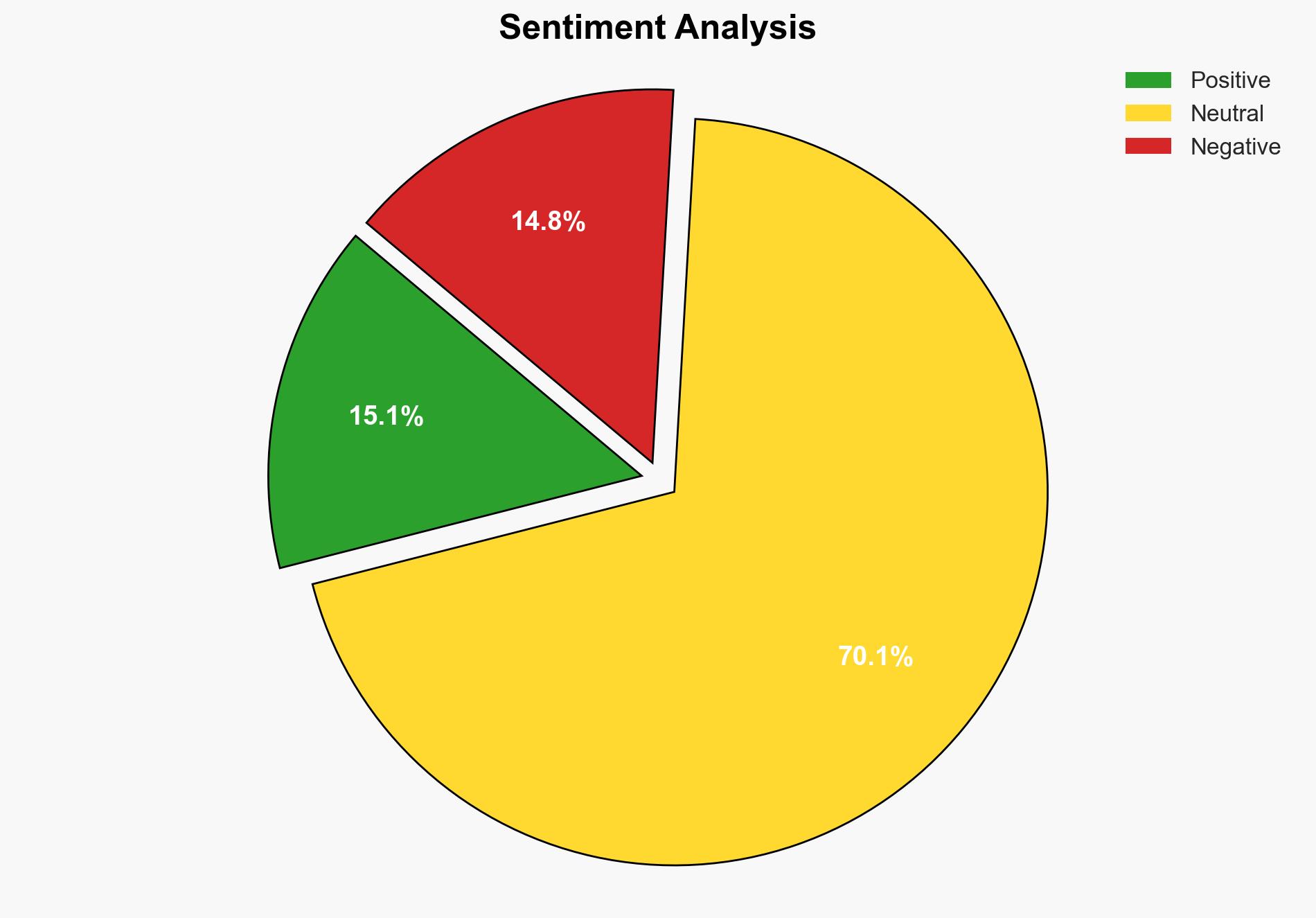Looming Trump travel ban strikes fear in Afghans who worked with US military – NBC News
Published on: 2025-03-07
Intelligence Report: Looming Trump Travel Ban Strikes Fear in Afghans Who Worked with US Military – NBC News
1. BLUF (Bottom Line Up Front)
The impending travel ban proposed by Donald Trump is causing significant concern among Afghans who have worked with the US military. The proposed ban is expected to include Afghanistan and Pakistan, potentially affecting thousands of individuals who have been promised visas for their service. The situation is reminiscent of the chaotic withdrawal from Afghanistan and poses a risk to those who may face persecution from the Taliban. Immediate action is required to address the humanitarian and security implications of this policy.
2. Detailed Analysis
The following structured analytic techniques have been applied for this analysis:
SWOT Analysis
Strengths: The US has established a strong network of allies in Afghanistan who have provided valuable support.
Weaknesses: The proposed travel ban undermines trust and could lead to a loss of critical local partnerships.
Opportunities: Revisiting the policy could strengthen diplomatic relations and enhance regional stability.
Threats: The ban may exacerbate regional instability and increase anti-US sentiment.
Cross-Impact Matrix
The travel ban could influence neighboring regions by increasing refugee flows to countries like Pakistan and Qatar, potentially straining their resources and affecting regional security dynamics.
Scenario Generation
Best-case scenario: The US government revises the travel ban to include exceptions for Afghan allies, maintaining regional partnerships.
Worst-case scenario: The ban is implemented without exceptions, leading to increased regional instability and humanitarian crises.
Most likely scenario: Partial exceptions are made, but significant numbers of Afghans remain affected, leading to ongoing advocacy and diplomatic challenges.
3. Implications and Strategic Risks
The proposed travel ban poses risks to national security by potentially alienating allies and increasing anti-US sentiment. Regionally, it may destabilize neighboring countries due to increased refugee flows. Economically, the ban could impact US interests by disrupting partnerships and increasing costs associated with humanitarian aid and resettlement efforts.
4. Recommendations and Outlook
Recommendations:
- Engage in diplomatic efforts to revise the travel ban, ensuring exceptions for Afghan allies.
- Enhance security vetting processes to address concerns while maintaining humanitarian commitments.
- Strengthen partnerships with regional allies to manage potential refugee flows and maintain stability.
Outlook:
Best-case: Diplomatic efforts lead to policy revisions, preserving US-Afghan alliances.
Worst-case: The ban proceeds without exceptions, leading to increased regional instability and humanitarian crises.
Most likely: Partial exceptions are made, but significant advocacy and diplomatic challenges persist.
5. Key Individuals and Entities
The report mentions significant individuals such as Donald Trump, Kim Staffieri, and Shawn Vandiver. Organizations involved include advocacy groups and nonprofits working to assist Afghans affected by the proposed travel ban.





